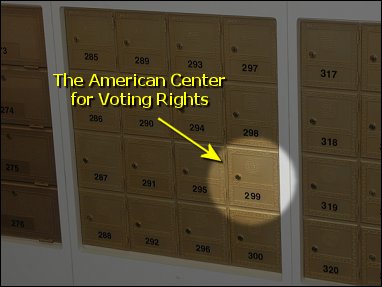1 In A Million
There is already a strong case that there were significant irregularities in the presidential vote count from the 2004 election. Nevertheless, critics are asking for firmer proof before going forward with a thorough investigation. We feel strongly that this is the wrong standard.
One cannot have proof before an investigation. In fact, the burden of proof should be to show that the election process is accurate and fair. The integrity of the American electoral system can and should be beyond reproach. Citizens in the world's oldest and greatest democracy should be provided every assurance that the mechanisms they have put in place to count our votes are fair and accurate. The legitimacy of our elected leaders depends upon it."




